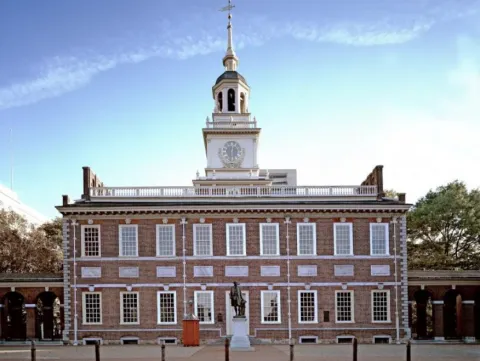
Retiring in Pennsylvania offers a diverse range of experiences, from charming small towns to bustling cities. The state's rich history, scenic landscapes, and vibrant culture make it an attractive destination for retirees. This article explores the key factors that make Pennsylvania a compelling place for retirement, including overall quality of life, cost of living, crime and safety, access to quality healthcare, weather, and culture. We'll also compare these aspects to the national average.
Pennsylvania offers a high quality of life for retirees, with a mix of urban, suburban, and rural areas. The state is rich in history and culture, with numerous museums, historical sites, and art galleries. The state's diverse landscape, from the rolling hills of the Appalachian Mountains to the lush valleys and rivers, provides ample opportunities for outdoor activities such as hiking, fishing, and boating.
Compared to the national average, Pennsylvania's quality of life is bolstered by its affordable housing, a wide range of recreational activities, and a slower pace of life in many areas. However, the quality of life can vary depending on the region, with cities like Philadelphia offering more amenities but also a higher cost of living.
Pennsylvania's cost of living is relatively moderate compared to the national average. Housing costs are generally lower than the national average, making it an attractive option for retirees on a fixed income. The median home price in Pennsylvania is often below the national median, and property taxes, while slightly above average, are still manageable. Additionally, Pennsylvania does not tax retirement income, which is a significant advantage for retirees.
Groceries, utilities, and healthcare costs in Pennsylvania are close to the national average, with some regional variations. The overall affordability of the state makes it a viable option for retirees looking to stretch their retirement savings.
Safety is an important consideration for retirees, and Pennsylvania offers a mixed picture. According to recent data, the state's violent crime rate is slightly higher than the national average, largely due to urban areas like Philadelphia. However, many suburban and rural areas have much lower crime rates, providing a safer environment for retirees.
Property crime rates in Pennsylvania are also higher than the national average, but this varies widely depending on the region. Smaller towns and rural areas generally have lower crime rates, making them attractive options for those seeking a peaceful retirement.
Pennsylvania is home to several top-rated healthcare institutions, including the University of Pennsylvania Health System and UPMC (University of Pittsburgh Medical Center). The state offers a robust healthcare system with a wide range of medical services and specialists. Access to quality healthcare is crucial for retirees, and Pennsylvania generally performs well in this area.
Compared to the national average, Pennsylvania has a higher number of healthcare providers per capita, particularly in urban areas. However, access to specialized care can be more limited in rural regions. Overall, the state provides good healthcare options, which is an essential factor for retirees.
Pennsylvania has a tax burden that places it in a relatively moderate position compared to other U.S. states. The state's overall tax burden is influenced by a combination of individual income taxes, property taxes, and sales taxes. Pennsylvania levies a flat state income tax rate of 3.07%, which is relatively low compared to many other states that use a progressive tax system. Property taxes in Pennsylvania can be quite high, especially in certain counties, which impacts the overall tax burden. Sales taxes in Pennsylvania are also moderate, with a base state sales tax rate of 6%, though some localities can add additional percentages.
When compared to other states, Pennsylvania's tax burden is generally seen as moderate. It is higher than in states without state income taxes but lower than in states with higher income tax rates and property taxes. Pennsylvania's approach to taxation reflects a balance between generating revenue for public services and maintaining a competitive tax environment for residents and businesses.
Pennsylvania's cultural scene is diverse and vibrant, offering a mix of historical, artistic, and recreational activities. The state has a rich history, with landmarks such as Independence Hall and the Liberty Bell in Philadelphia, and Gettysburg Battlefield. Pennsylvania is also known for its Amish communities, which offer a unique cultural experience.
The state's arts and entertainment scene includes numerous theaters, music venues, and art galleries. Philadelphia and Pittsburgh are cultural hubs, offering everything from professional sports to world-class museums. Compared to the national average, Pennsylvania offers a rich cultural tapestry that appeals to a wide range of interests.
Pennsylvania experiences a four-season climate, with hot summers, cold winters, and moderate spring and fall seasons. The state's climate varies by region, with the western and northern parts experiencing colder winters and more snowfall, while the southeastern region has milder winters.
Compared to the national average, Pennsylvania's climate is typical for the northeastern United States. The state does not experience extreme weather conditions, such as hurricanes or tornadoes, as frequently as other parts of the country, which can be a plus for retirees seeking a more stable environment.
Overall, Pennsylvania offers a compelling mix of affordability, quality healthcare, cultural richness, and natural beauty, making it an attractive destination for retirees. While the state's crime rates and weather conditions may vary, the diverse range of living environments ensures that retirees can find a place that suits their lifestyle and preferences. Whether you prefer the hustle and bustle of city life or the tranquility of rural areas, Pennsylvania has something to offer for everyone.




